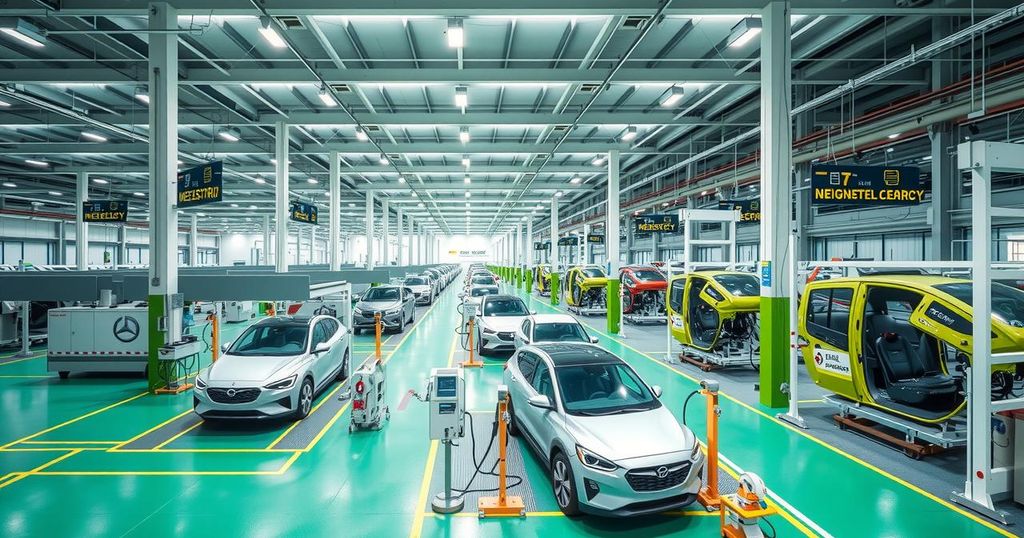BYD Begins Assembling EVs at New Factory in Brazil

- BYD begins assembling electric vehicles in Brazil.
- The new Bahia facility plans to assemble 50,000 vehicles annually by 2025.
- BYD is increasing imports to offset rising tariffs on EVs.
- Brazil’s tariff policy pressures companies to move manufacturing locally.
- Serious labor violations have been reported at the construction site.
BYD Expands Operations with New Factory in Brazil
BYD, the Chinese automotive giant, is taking a significant step in its international expansion by beginning the assembly of electric vehicles (EVs) in a new factory located in Bahia, Brazil. This facility, strategically set up to assemble a substantial 50,000 vehicles annually by 2025, will utilize imported kits as part of a strategy to lessen dependence on imports amid rising tariffs. According to Alexandre Baldy, senior vice president of BYD Brazil, while they anticipate launching operations soon, they are still awaiting final regulatory approvals before fully moving forward with production.
Tariff Hikes Drive BYD’s Local Manufacturing Push
This move towards local assembly comes in the wake of Brazil’s evolving tariff strategy aimed at invigorating domestic manufacturing. The government plans to reinstate tariffs gradually, escalating from 0% to 35% by July 2026, pressuring companies like BYD to speed up production locally. In light of these changes, BYD has already ramped up its imports, moving about 22,000 finished vehicles from China earlier this year prior to the implementation of those hefty taxes on electric vehicles, with an additional significant shipment of 7,300 units seen in May 2025—this was their largest single export operation to Brazil, trying to preemptively counter these duties. The situation is further complicated by concerns voiced from local industry groups about the significance of BYD’s current import-heavy strategy.
Labor Violations Create Challenges for BYD’s Growth
However, BYD’s operations are not without controversy. Reports of labor violations at the factory site have emerged, detailing serious accusations against the employment practices affecting over 160 Chinese workers, including issues that have raised alarms among local authorities such as when workers had their passports withheld. Brazilian investigations have labeled the conditions endured by these construction workers as “slavery-like,” which could lead to hefty legal ramifications for the company, including a lawsuit seeking fines potentially as high as $45 million. This incident has raised larger questions regarding compliance with local labor laws and could reverberate through the broader Chinese investment landscape in Latin America, especially as it pertains to the Belt and Road Initiative.
In summary, BYD’s initiation of EV assembly in Brazil marks a pivotal expansion as the company seeks to adapt to the local market’s regulatory landscape. While the ambitious plans for production aim to integrate with Brazil’s tariff policies, they also unfold amidst serious labor challenges that could impact BYD’s reputation and operations. The balance between meeting production goals and addressing compliance issues will be crucial for BYD as it navigates its future in this vital market.





